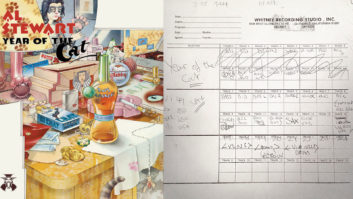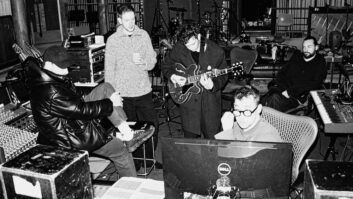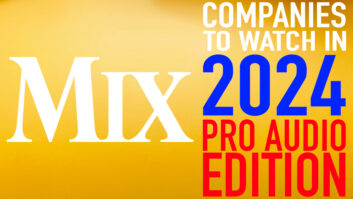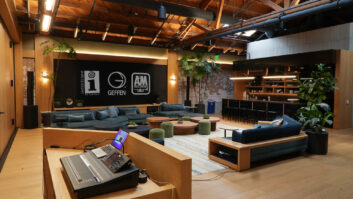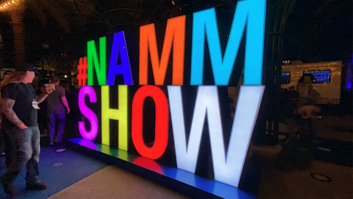As I write this, last week the Dow dropped 700 points. Commodity prices got hammered. The Eurozone is fracturing, and the Chinese housing bubble is about to burst—so don’t look to them for help. Fukushima is still out of control, as it cheerfully sends radiation our way. The southwest U.S. is parched from a drought, while the upper Midwest is drowning. Fun times!

But this isn’t about doom and gloom—even though things won’t improve anytime soon. This is about getting a handle on the future and knowing where the punches are going to land, because then you can roll with them. During recessions, the world doesn’t stop, it just slows down—and here’s what the crystal ball says about 2012.
Software will continue to devaluate. We can thank Apple for this one, who got other companies to make cheap apps so the Cupertino behemoth could gross an estimated 60 percent profit margin on the iPhone 4 and 40-50 percent on iPads, depending on the model. Heard of any Mark Zuckerbergs in the music industry making big bucks off their iThingie music app?
Music software companies have figured this out. I’d bet MOTU makes more from its interfaces than from Digital Performer upgrades. And while the big Pro Tools 9 news was Avid opening up the software to anyone’s hardware, the under-the-radar story was Avid introducing top-shelf hardware audio interfaces designed to work with anyone’s software.
We now live in a world where when IK introduced a $19.95 app for its iRig Mic with five dedicated (and very cool) vocal processors along with seven more conventional processors, reviewers with a computer perspective complained that the price was too high. While I’m sure IK would love to pick up some bucks from software, they were smart enough to base the iRig Mic around a piece of hardware— the mic itself.
Native Instruments and Arturia have also branched out big time from software into hardware (and while Ableton doesn’t make hardware per se, they’ve forged strong partnerships with hardware controller companies). PreSonus—primarily a hardware manufacturer— is doing the hardware/software synergy shuffle too, as it bundles the Studio One DAW with its interfaces and supports its mixers with applications. And have you seen the new Steinberg controllers? If you’re a software company and don’t make hardware, you’d better align with a company that does.
So where does that leave Microsoft and Windows 8? It made a strong comeback with Windows 7 after the Vista debacle, but whether it can carry that momentum through to an OS designed for a new generation of input devices remains to be seen—and its track record with hardware has not been great.
No tablet will challenge the iPad successfully. Given the profit margin, Apple can afford to bring down the price if significant competition appears (and if the iPod is any example, good luck taking over an Apple-dominated market). So keep those iPad audio apps coming…even if they don’t make you any money.
Expect smaller, more frequent software updates. Cubase 6 may be the last of the giant updates, as more companies follow Cakewalk’s model of releasing more frequent, less expensive updates. Ableton proved you don’t have to have a new version every year—Live 8 was introduced in 2009, yet sources say the company is doing extremely well. The strategy of smaller updates makes sense; code costs the same to produce whether 1,000 or 100,000 people buy it, so volume is good. The constant “pinging” may discourage the base from jumping ship, too.
Audio fidelity will improve. Higher internet bandwidth— even in the woefully underperforming U.S.—and streaming from cloud storage will make transfers of lossless compression files realistic. Furthermore, expect higher-quality playback hardware (better earbuds, D/A converters, etc.), as there will be a good reason to have it.
The Netbook has left the building. It was a logical transitional technology, but isn’t powerful enough to challenge laptops, or friendly enough to unseat iPads. A $99.99 price tag might save the Netbook, but that’s not in the cards.
Companies that sell inexpensive, reasonably good music gear will do well. There will be a lot of upset people in the months ahead, and as most don’t know how to read or write to our dismal educational system, they’ll express themselves with music and video. This will create a substantial entry-level gear market for the 2012 equivalent of the mid-’60s folksinger.
Dance music and DJ’ing will hopefully get traction in the U.S. This would open up a market that encompasses lighting, software, controllers, laptops and more—another chance for a significant shot in the arm to the industry.
The world will not end in2012. The reason why the Mayan calendar ends in 2012 is because it was the end of the work week, and for anything past 2012, they had to pay overtime. Now you know.
Craig Anderton is executive editor of Electronic Musician magazine, and editor-in-chief of Harmony Central.
